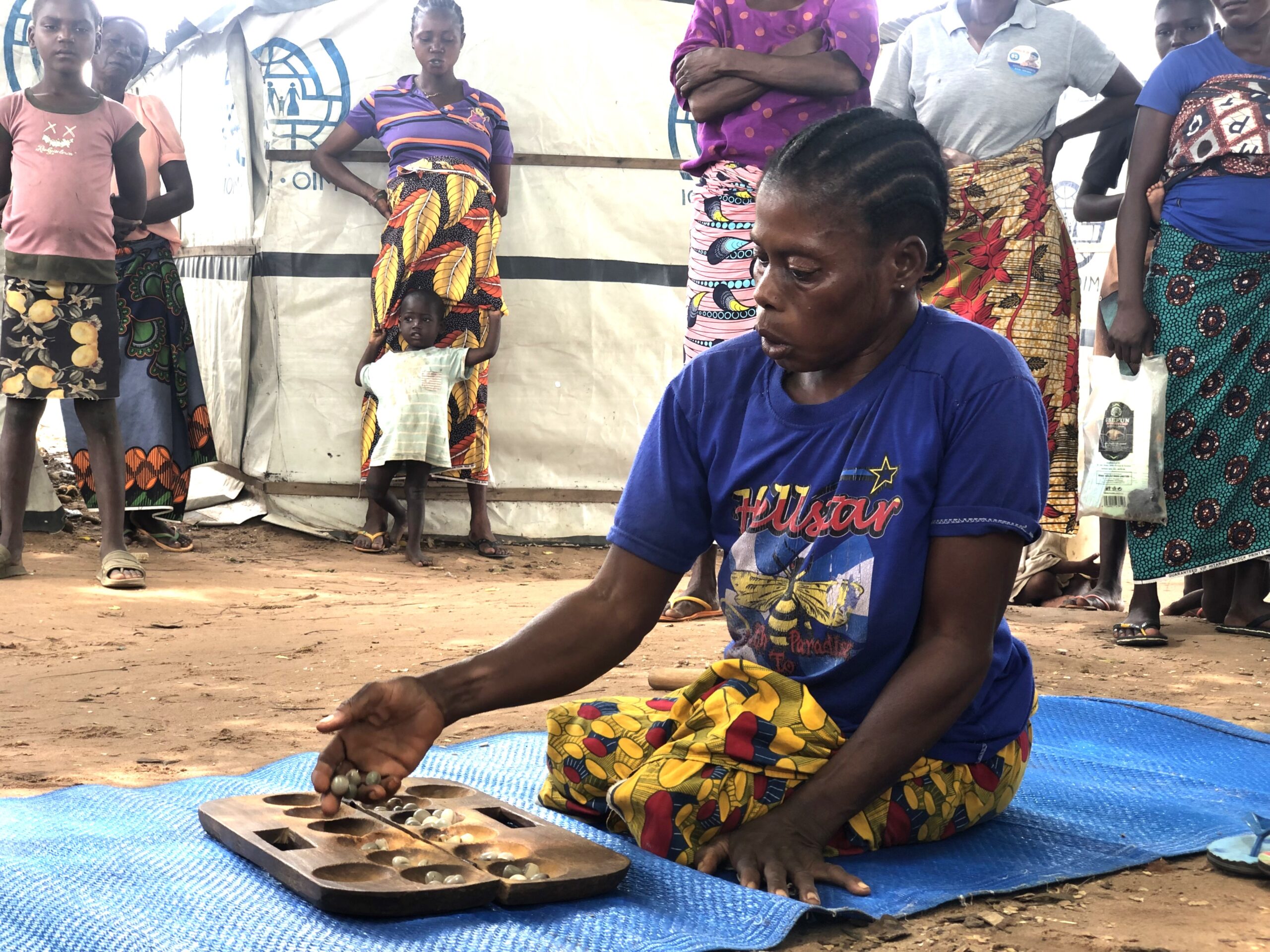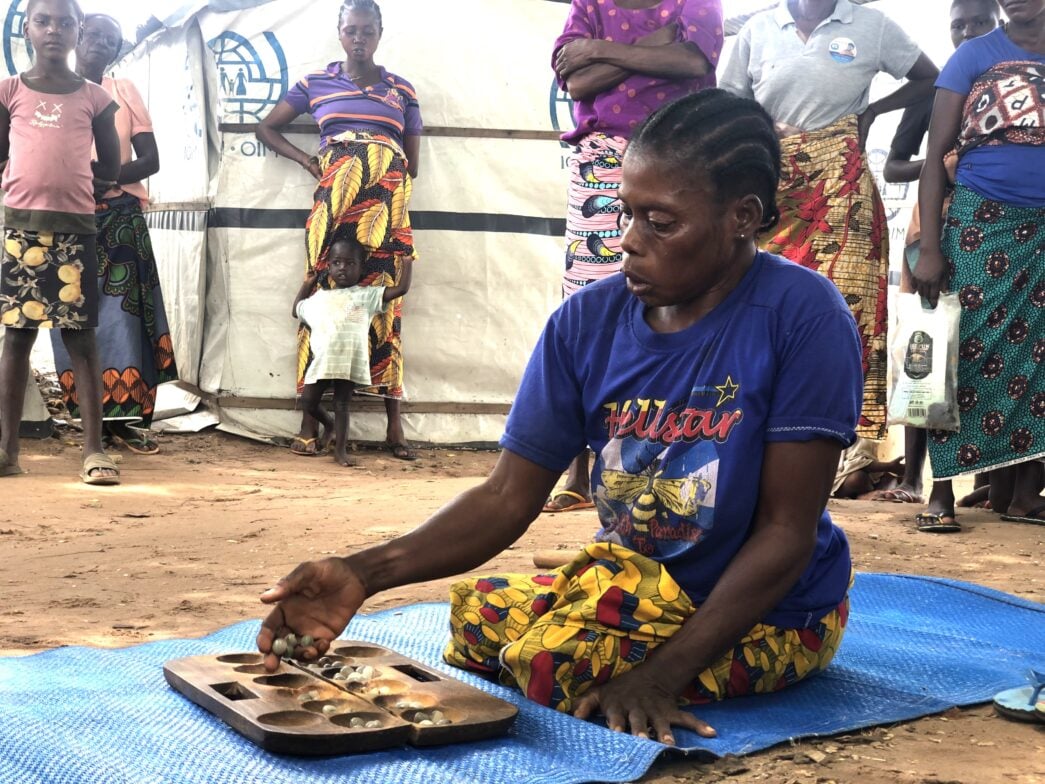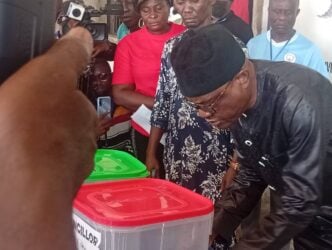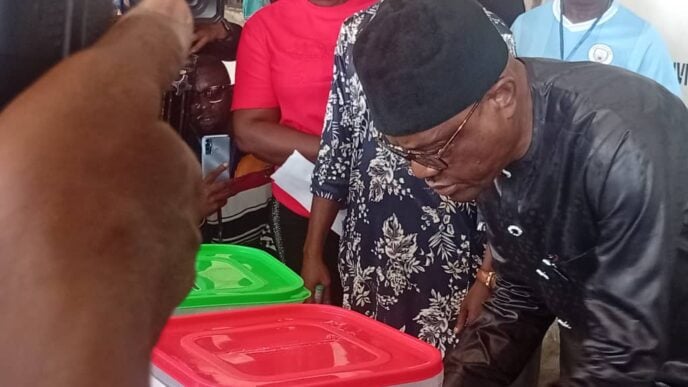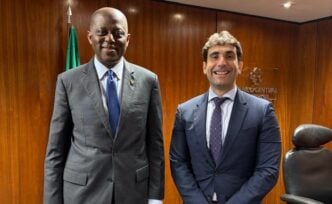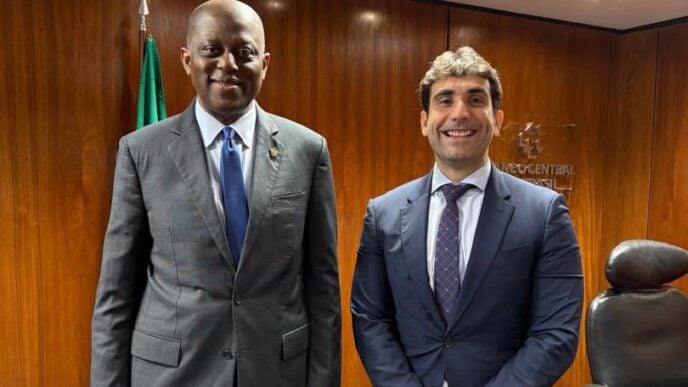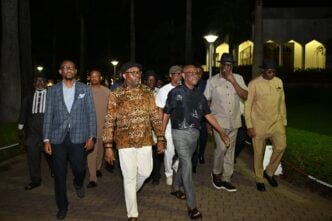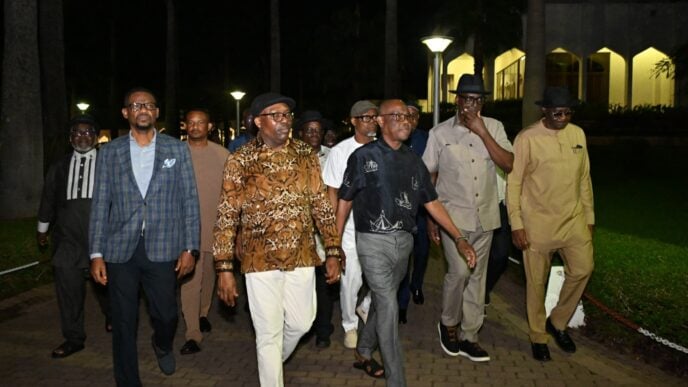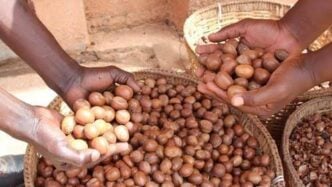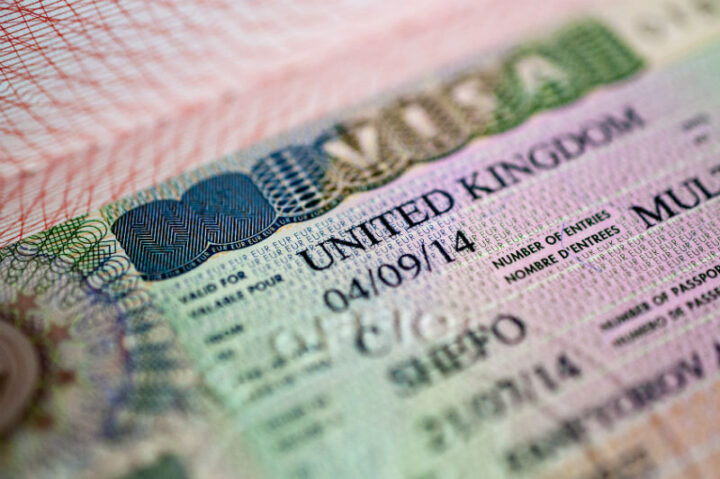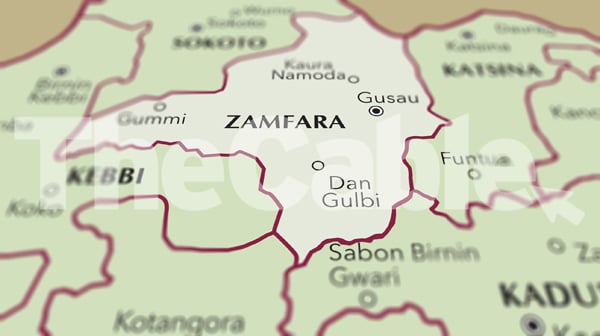Alice Agashi on Ayo Board...Photo credit_ Jairus Awo
BY JAIRUS AWO
The first thing you notice is the sound — not the cry of a hungry child, nor the low murmur of grief that lingers in the air at John Mark Daudu II IDP camp, home to over 10,000 displaced people from Guma, Logo, and Makurdi LGAs in Benue state, and Doma LGA in Nasarawa state.
As you move deeper into the camp, the air thickens with the scent of wood smoke, damp earth, and the press of too many lives packed too tightly together.
Yet, beneath a mango tree where women gathered, a different sound broke the monotony: a wooden clatter. “Tok-tok-tok.” The rhythmic tapping of a game that had quietly become essential to the women who lived there.
Advertisement
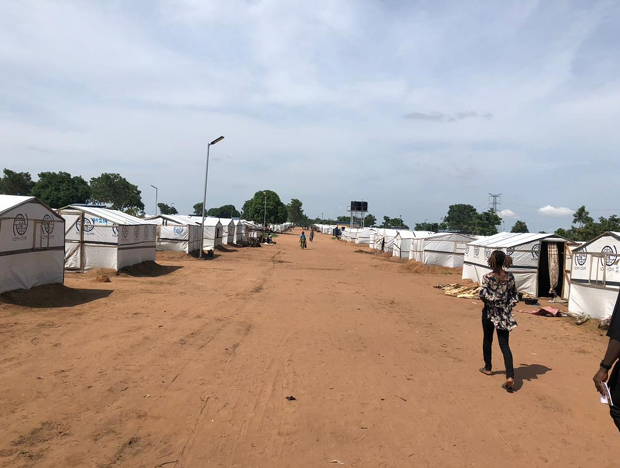
Alice Agashi, a 40-year-old woman from the Mbanyian community in Mbawa ward, Guma LGA, leaned over a worn Ayo board. Born with physical disabilities and grieving the loss of her two children, she cradled a small cluster of grey seeds in her hand.
For a single moment, she was not a refugee. She was a strategist. The lines of trauma etched around her eyes softened as she calculated her next move.
“When we play, the world stops,” she said later, her voice low but clear. “For that small time, you forget hunger. You forget the pain. You are just here.”
Advertisement
In the Johnmark Daudu II IDP camps, Ayo, a traditional game, had become an unexpected form of medicine. There were no clinics or therapists for the mind there. Rather, they had a grassroots solution to trauma and a powerful show of a decision to do more than just survive.
GRIEF IN HER HANDS
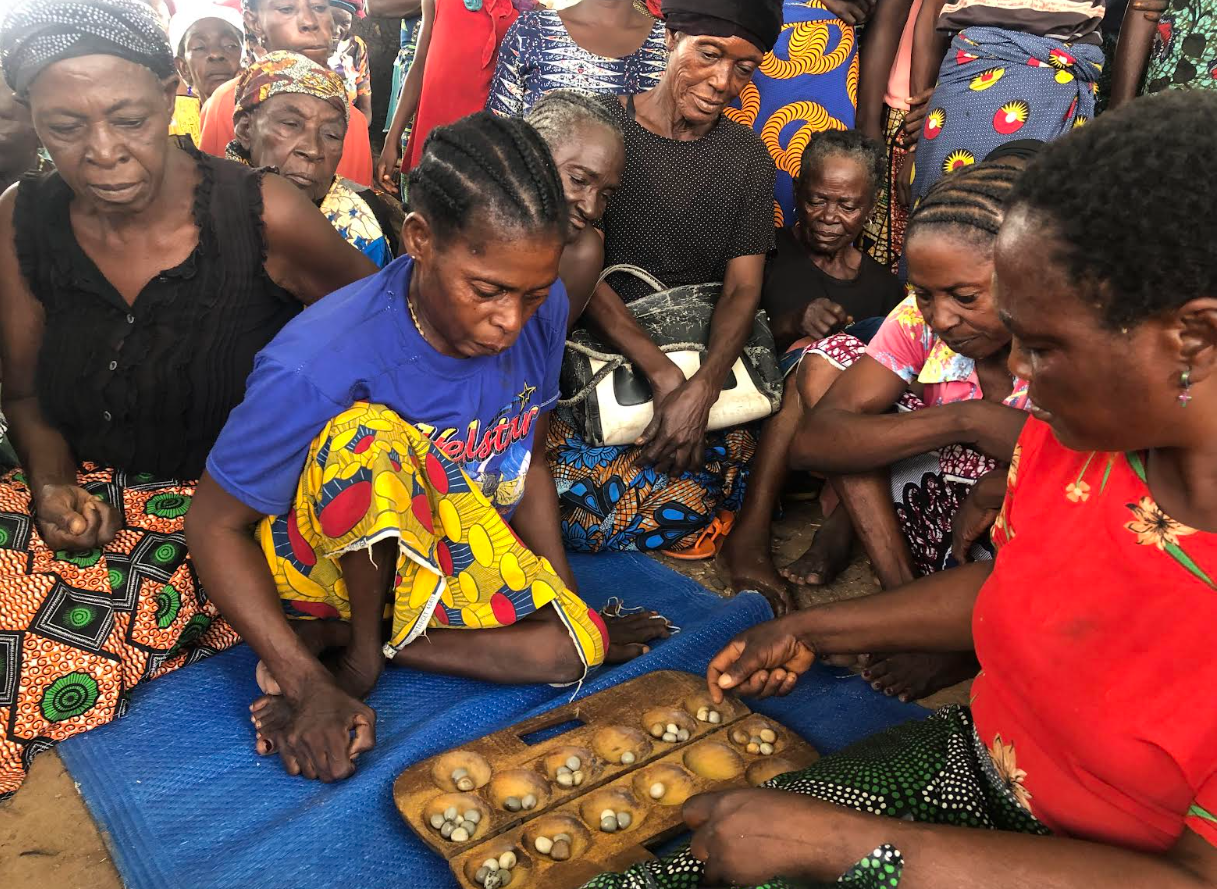
Before the camp, Alice’s hands were instruments of life. They could sense the exact moment a yam was perfectly pounded, weave hair with elegance, and sort beans with practised ease. Her fingers knew just how much spice to stir into the family soup, a memory now slipping from her grasp. She was still mourning her 10-year-old son, lost to a sudden illness, when her village, Mbanyian, erupted in chaos.
Gunshots rang from every direction. Her house, close to the road, became her escape route. Neighbours helped her flee that evening. The memory of her once-whole family is now a wound that refuses to heal.
Advertisement
“I used to have a life,” she said. “Now I live empty, not knowing what tomorrow will bring.”
“For many months here, my hands were empty,” she recalled, looking down at her palms, calloused from a life that is gone.
“There was nothing to do but worry. The mind would just run and run, thinking of everything we lost. It is a sickness.”
This sickness, the kind that doesn’t show up on a thermometer, was everywhere in Benue’s IDP camps. On previous reporting trips, I witnessed women grappling with grief in silence. With no structured activities and no outlet for their pain, many retreated into their tents for days.
Advertisement
Others turned to smoking, chasing a brief escape from the weight of their reality. These were not just habits; they were symptoms of a deeper, unspoken crisis — a quiet desperation born of trauma, displacement, and the absence of care.
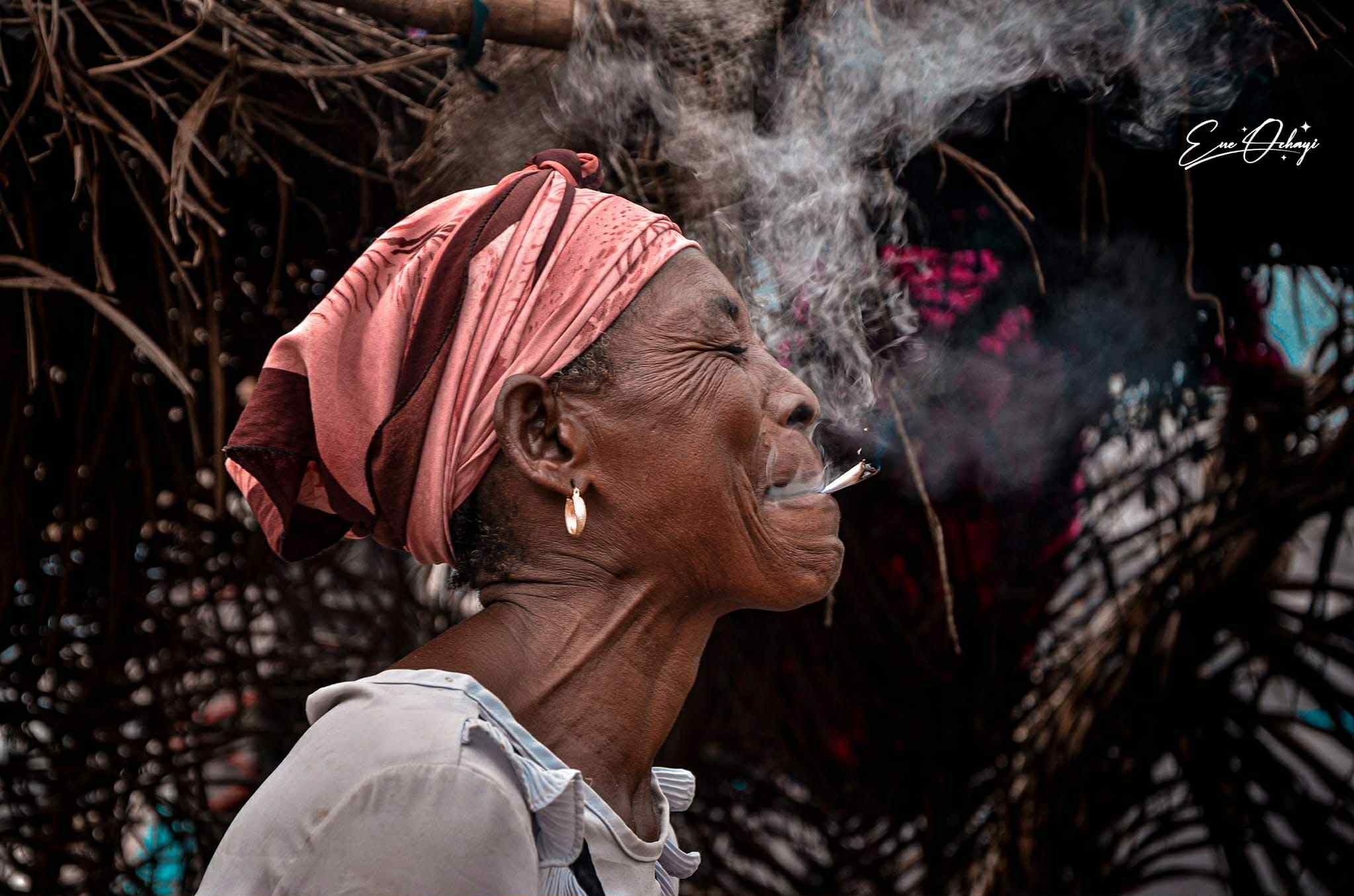
This mental anguish is a direct consequence of a brutal, prolonged conflict. For years, Nigeria’s north-central region, especially Benue state, has been a flashpoint for violence between semi-nomadic herders and farming communities. As traditional conflict-resolution systems collapsed and small arms proliferated, disputes turned deadly. Entire villages were razed. Thousands killed. Hundreds of thousands displaced.
Advertisement
Alice’s suffering is one of countless invisible casualties. Studies from the World Health Organization and UNHCR show displaced populations across Africa face significantly higher rates of depression, anxiety, and PTSD. In Nigeria, the numbers are staggering. With fewer than 300 psychiatrists serving over 200 million people, specialised mental health care is a distant dream for the most vulnerable.
MBATAREN’S QUIET REVOLUTION
Advertisement
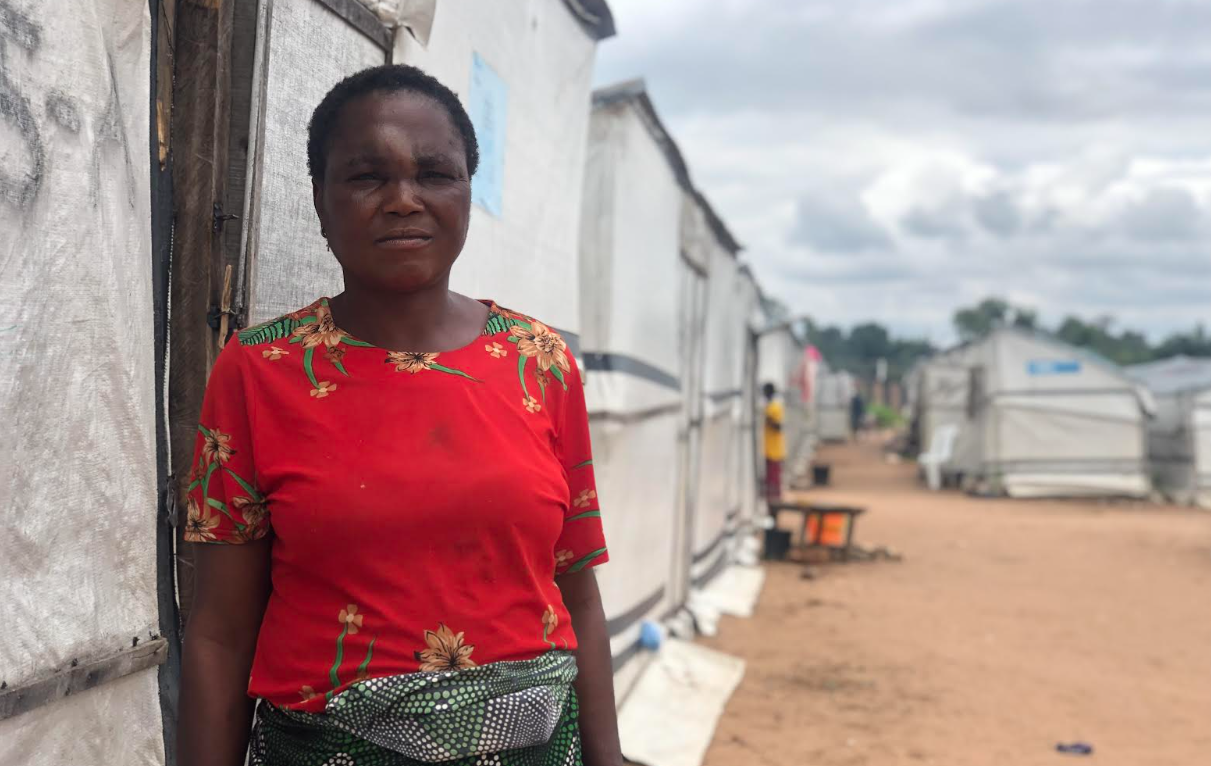
Amid this backdrop of systemic neglect, Mbateren Yenge, a 50-year-old mother of four who fled the Uvir community in Guma LGA, sparked a quiet revolution.
When she arrived at John Mark Daudu II camp four years ago, she carried with her the memory of the Ayo board. Back home, it belonged to her husband. She had only watched the men play. But in the camp, the game became hers.
Advertisement
At first, she played alone, trying to keep her mind occupied. Then, other women, like Alice, joined her. Mbataren became the camp’s unofficial teacher. Her tent became a classroom.
Ayo, also known as Ayo Olopon, is a traditional mancala game played by the Yoruba people of Nigeria. It features a carved wooden board with twelve holes and 48 seeds. Each player begins with four seeds per hole, moving them in an anti-clockwise direction. The goal: capture more seeds than your opponent.
But in the camps, the game has become more than strategy. It’s survival. It’s therapy. It’s a connection.
HEALING IN ABAGENA
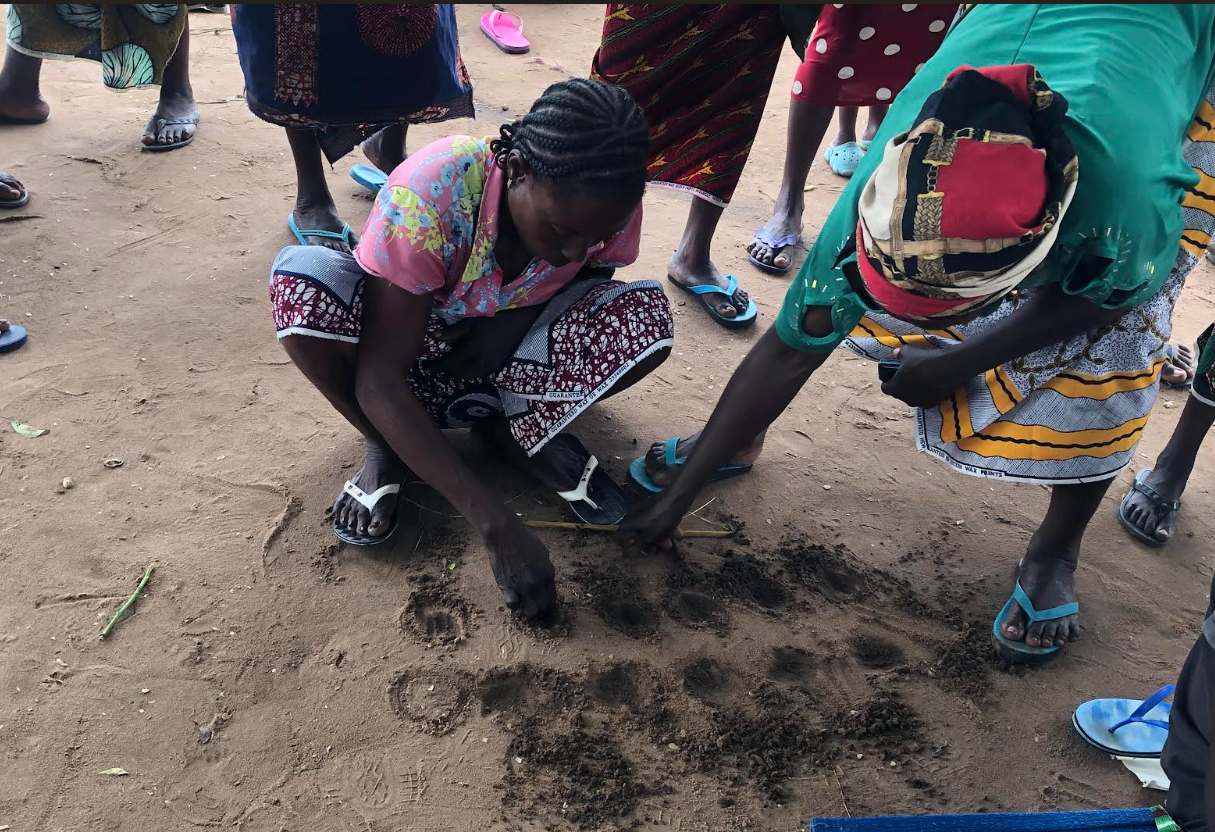
Sixteen kilometres from John Mark Daudu II lies Abagena camp, where 37-year-old Kwaghdoo Mnenge had built a wall of silence around herself. After losing her husband and eldest son in an attack seven years ago, she rarely left her tent, except to collect food or supplies.
It was Maryam, an Etulo woman who felt like an outsider, who broke through. One afternoon, Maryam drew an Ayo board in the dirt and played with pebbles. Kwaghdoo watched for weeks. Then, one day, she stepped forward. Her voice, raspy from disuse, broke the silence: “That is not how you capture the house.” It was the first full sentence she had spoken in months.
In Mega Camp, Benue’s largest and most organised IDP settlement, housing over 80,000 displaced households, Ayo has become a lifeline.
For Dooyum, a sharp 28-year-old whose university dreams were incinerated with her village, the game is more than a distraction.
“My body is here, but my brain is dying,” she said, her moves quick and decisive. “This game… It’s mathematics. It’s logic. It keeps my mind from forgetting how to think.”
The impact of Ayo has grown beyond personal healing. In Mega Camp, it’s become a tool for peacekeeping, a shift embodied by Torkwase, the camp’s elected women’s leader.
One afternoon, near the main water pump, a dispute erupted between two women over a single bar of soap. Voices rose. Accusations flew. A crowd gathered, tension mounting. Just a few feet away, under the shade of a mango tree, another sound persisted: tok-tok-tok. Dooyum and her group were playing Ayo, focused and unbothered. One head turned. Then another. Slowly, the crowd’s attention shifted from the argument to the game. The two women, flushed with anger, suddenly realised they were shouting into silence.
“That was when I understood,” Torkwase said. “This is not just a game. It is peaceful. It is a place where problems go to die.”
Torkwase wasn’t the only one who had noticed the game’s impact. At John Mark Daudu II camp, Ayo and other locally conceived games have helped build and maintain peace.
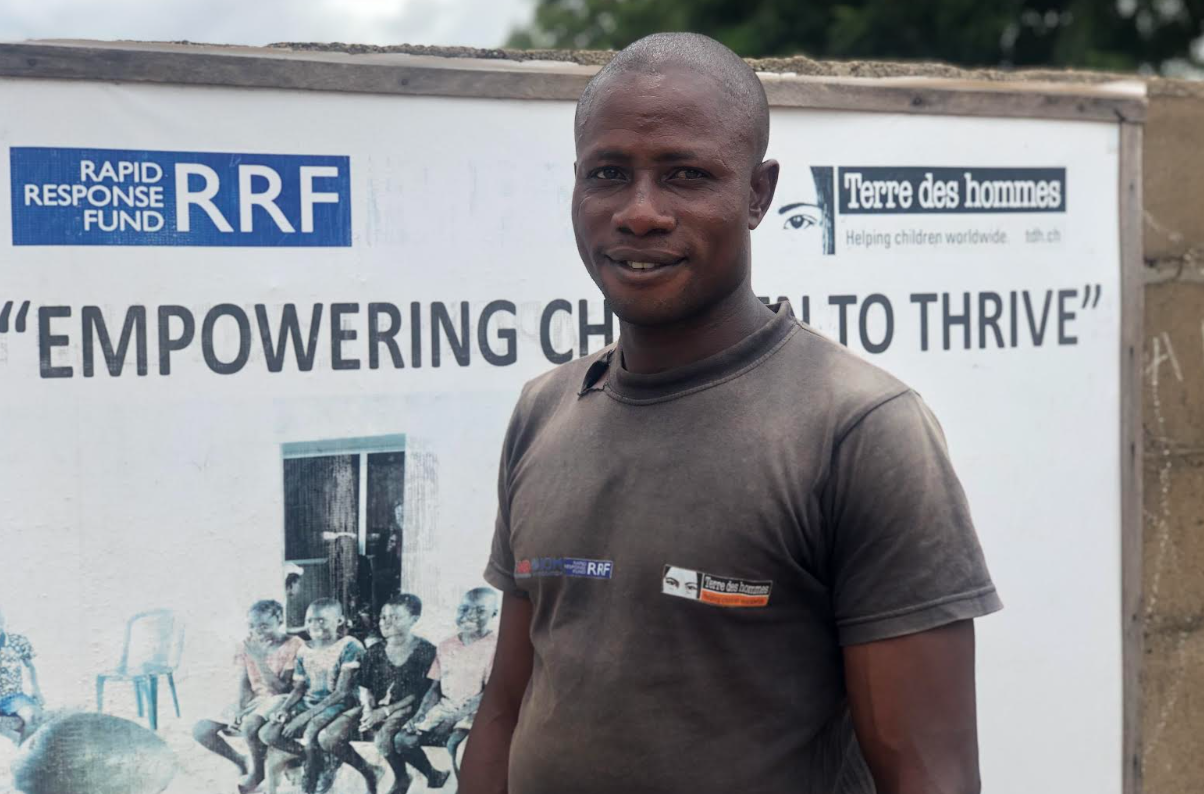
Cosmas Iorzool, the camp’s youth leader, said women from different communities and even neighbouring Nasarawa state have used the game to foster unity.
“This game helps them make decisions as one community,” he explained. “They stand up for each other, just like they do on the board.”
Though it began with women, the game has spread. Now, men play too.
This grassroots solution poses a challenge for formal aid organisations. John Ode, disaster risk reduction expert and national coordinator of Hope Impact Initiatives, has observed the games firsthand.
“Honestly, it’s brilliant,” he said. “But how do we support it? Do we provide boards? Do we formalise it? The moment an NGO steps in, you risk destroying what makes it work.” Ayo’s power lies in its simplicity.
Structured play, cognitive engagement, and social interaction offer distraction from intrusive thoughts, restore a sense of control, and build vital connections.
“These elements mirror therapeutic principles, routine, purpose, and communal support, essential for healing trauma where formal mental health services are scarce. Locally producing more boards could offer sustainable psychological support, giving women a way to cope, heal, and build resilience,” Ode said.
THE CLATTER THAT HEALS
For now, the women aren’t waiting. Every afternoon, as the sun dips over John Mark Daudu II, Abagena, and Mega Camp, the quiet clatter returns. Tok-tok-tok. It’s the sound of a community healing itself, not with medicine or aid, but with seeds and a wooden board. It’s the sound of women not just surviving but strategising their way back to life.
This reporting was funded by the Centre for Journalism Innovation and Development (CJID).
